The rise of Islamist militants in the Sahara
- Published
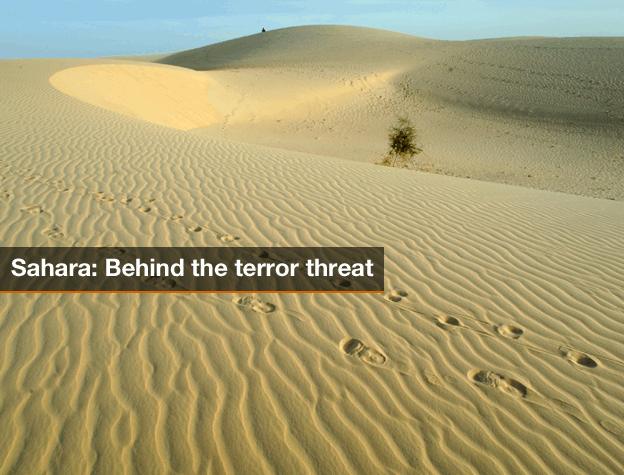
Following the recent attack on an Algerian gas plant, UK Prime Minister David Cameron says that the Sahara desert has turned into a haven for militant Islamists who are waging a jihad against the West. He says it will take decades to defeat them. What is the background to this growing threat?
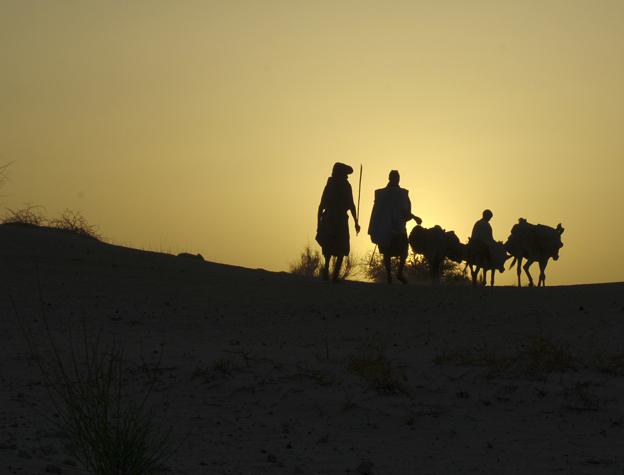
The Sahara used to be a thriving economic zone, famed for its long camel caravans laden with salt, which in the Middle Ages was said to be worth more than gold. But times - and trade routes - have changed and now the countries on the desert's southern fringes, mainly ex-French colonies, are among the world's poorest.
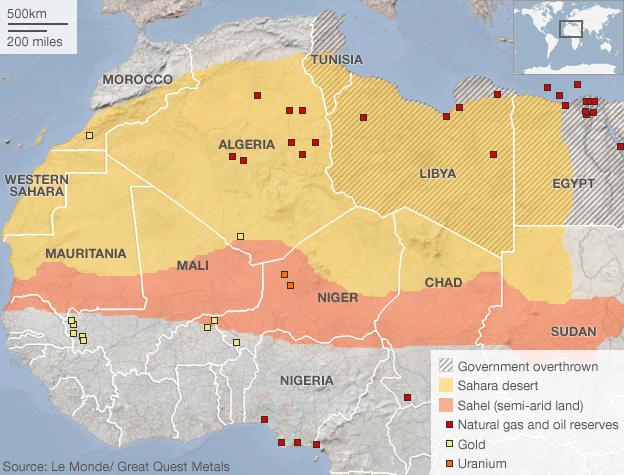
Although most of the desert's inhabitants are poor, there are rich natural resources to be found under the sands. Algeria has oil and gas, Niger has one of the world's largest uranium reserves, which power France's nuclear plants. Mali is Africa's third biggest gold producer.
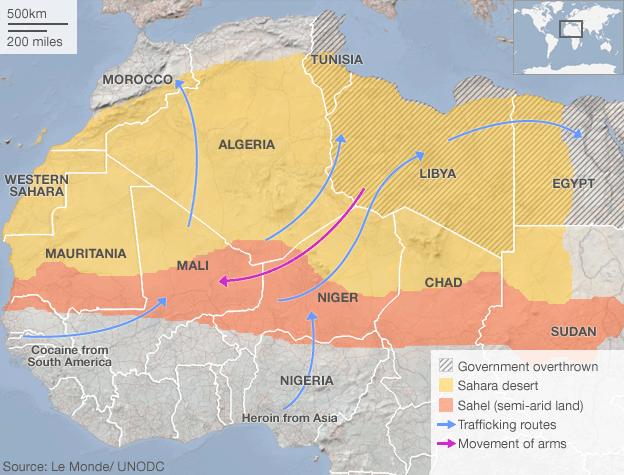
Some of the region's inhabitants have used their desert knowledge for criminal purposes - smuggling migrants and drugs along ancient routes to Europe. Some jihadists have used the profits to buy arms. When Col Gaddafi was toppled in Libya in 2011, many Tuareg fighters returned to Mali and started a rebellion.
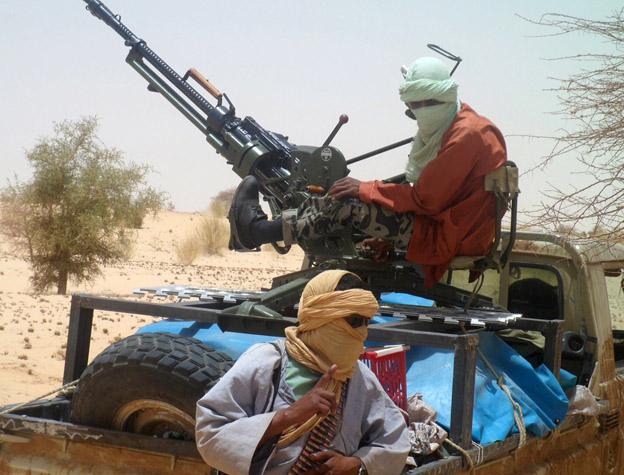
The Tuareg rebels joined forces with Islamists who had been expelled from Algeria in the 1990s and had spread across the Sahara, forging links with al-Qaeda and staging attacks in all of the region's countries. In April 2012, the new alliance quickly seized northern Mali - an area larger than France.
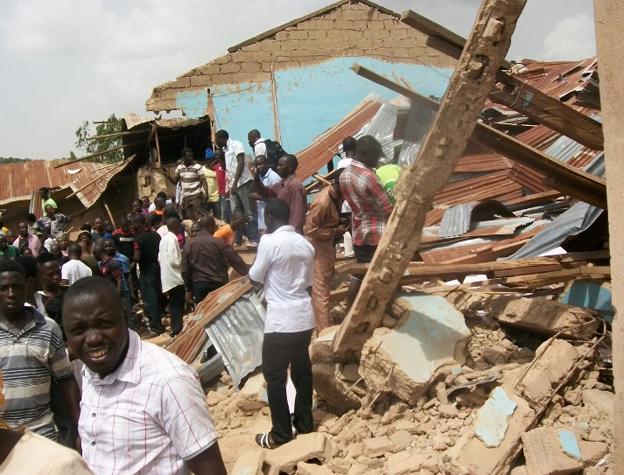
Numerous armed groups operate in the Sahara - with a mix of motivations from making money, to self-rule to global jihad. It is hard to know to what extent they work together. There are reports that other militant groups such as Nigeria's Boko Haram and Somalia's al-Shabab have links to the Saharan jihadists.
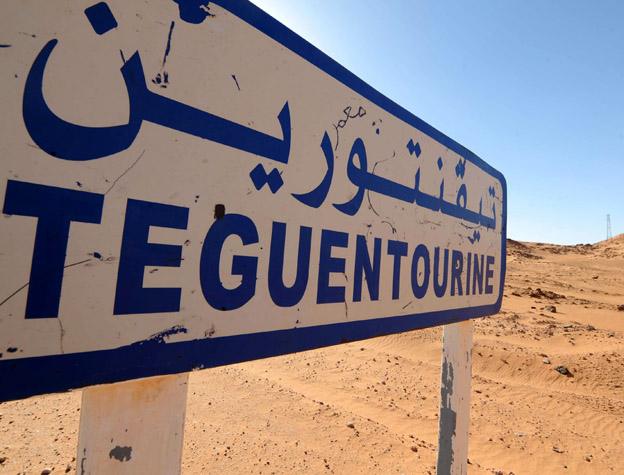
The militants who attacked the gas facility in Algeria are said to have been from countries across the region. Many Saharans share strong family and cultural ties with residents of the desert in other countries and see the desert as a single vast area rather than parts of several different national territories.